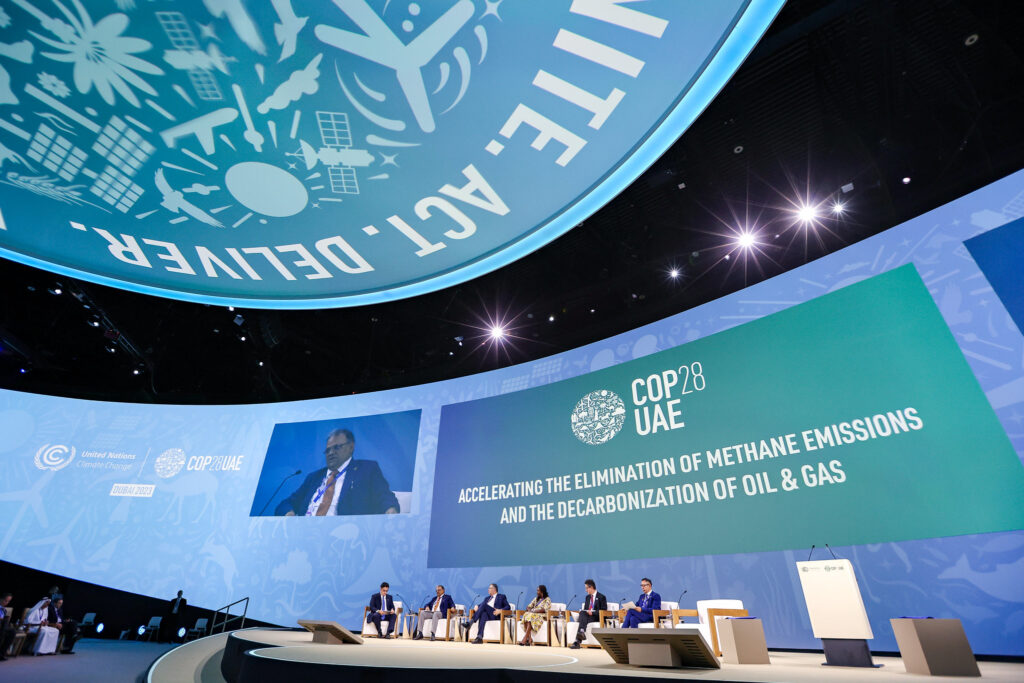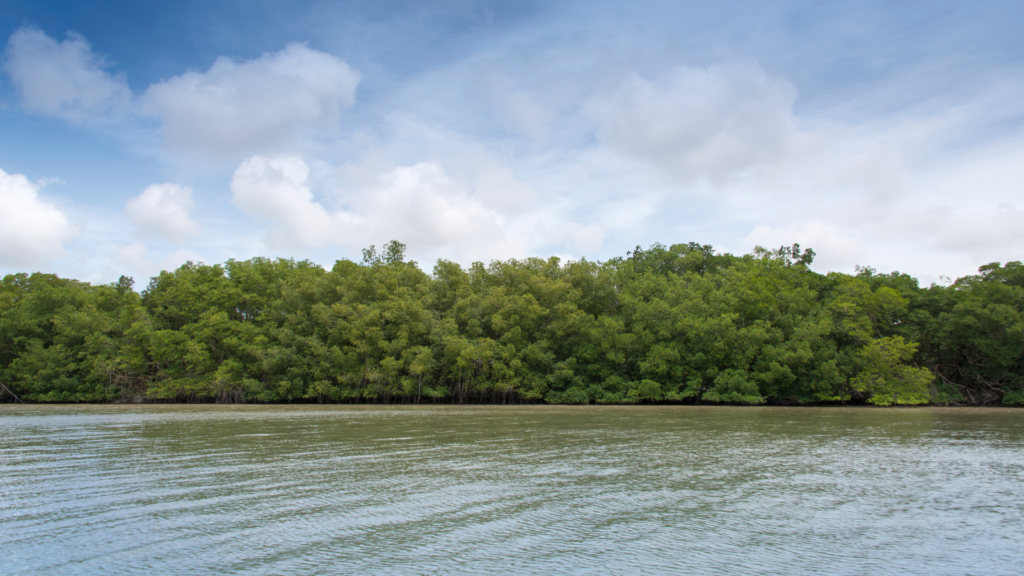Sign up for the COP28 Daily News Tracker for a comprehensive analysis of the climate summit and coverage from our Fellows, right in your inbox.
At the 28th Conference of the Parties (COP) which is currently being held in Dubai, United Arab Emirates, Suriname is the lead adaptation negotiator on behalf of the G77+China group. Tiffany van Ravenswaay of the Ministry of Spatial Planning and the Environment (ROM), is the lead adaptation coordinator and will negotiate on behalf of the group, specifically for the global goal of adaptation.
Global Goal Adaptation
Van Ravenswaay says that the G77+China group is pushing for the establishment of a framework for the global goal of adaptation. This decision stems from the two-year Glasgow–Sharm el-Sheikh programme (2022-2023) for global adaptation goal.
The adaptation coordinator explains that this programme aimed to set clearly defined objectives regarding adaptation. The program clearly shows the need for a framework to act as a guiding star for the adaptation goals that need to be met.
Article 7 of the Paris Agreement defines the global adaptation objective. Three important pillars are mentioned: increasing adaptive capacity, promoting resilience and reducing vulnerability to the adverse effects of climate change.

“When it comes to mitigation, we have the 1.5 degrees target. Regarding adaptation however, there are still no clear guidelines for what the world wants to achieve. That is why the framework is so important. It will also ensure that we can keep track of the progress on the three adaptation pillars,” says Van Ravenswaay.
According to Van Ravenswaay, the framework will need to have different indicators in thematic areas, such as ecosystems, health and well-being, food security and infrastructure. She also indicates that it is important for the G77+China negotiating group that the various countries can determine for themselves which indicators have the highest priority for their respective country.
Specific indicators will also be time-limited. Furthermore, the framework will be linked to the global stocktake so that progress towards the adaptation target can be analyzed and tracked.
Status of negotiations
Within the United Nations Framework Convention on Climate Change (UNFCCC), the governing body of the climate summit, all decisions must be unanimous to agree. Van Ravenswaay indicates that concerning the framework for the adaptation target, consultations are currently being held with the other negotiating groups such as the European Union (EU) and the “umbrella group” consisting of the non-EU developing countries.

The different negotiation groups will express their views on the framework and try to reach a consensus. According to Van Ravenswaay, if there’s no consensus after the consultation round, the process will take place at the ministerial level. In this case, two co-facilitators have been appointed from Chile and Australia respectively. Negotiations will then be conducted on a ministerial level to reach a consensus with the subgroups.
Importance of adaptation funding for Suriname
Van Ravenswaay believes that the means for implementation, such as finance, capacity building and technology transfer, are of paramount importance for the successful functioning of the framework. These three aspects are therefore strongly taken into account by the G77+ China group in the negotiations.
“The necessary resources should be made available to implement the framework, if this is not the case, you can set a ton of indicators, or it won’t work,” she continues. She also indicates that there is a large gap within the current finances for adaptation. Even if the current finance for adaptation available is doubled, it will only close 5 to 10% of the gap. According to the adaptation coordinator, it is therefore important that financial resources are made available.
China
Chinese President Xi Jinping is one of the big absentees at this year’s climate summit. An interesting contrast since China, along with the United States, whose President Joe Biden was also absent, are the two biggest climate polluters in the world. Van Ravenswaay explains that despite China’s political absence, the country is present during the technical negotiations of the G77+China group to push the China climate agenda.
This story was originally published by the Suriname Herald, with the support of Climate Tracker’s COP28 Climate Justice Reporting Fellowship.